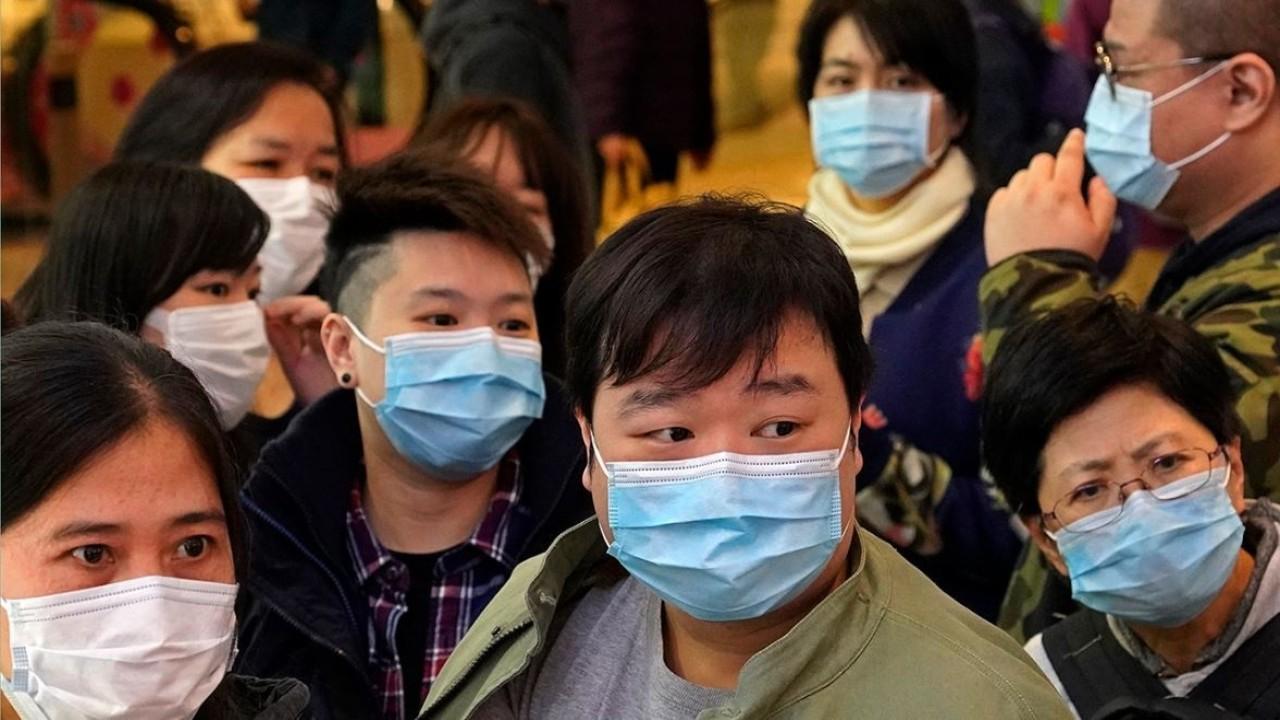China's virus cases fall, deaths rise, but count revised again
China says the number the of new virus cases rose by just 394 from the previous day, with a rise in the death of 114
New coronavirus cases in China have again declined, up just 394, after authorities Thursday again changed how they count new daily infections. They are now discounting cases that had come back negative after laboratory tests.
Japan's health ministry said two former passengers of a virus-stricken cruise ship have died, raising the number of deaths in Japan to three. The Diamond Princess has the most cases outside China with 621 passengers and crew testing positive.
GET FOX BUSINESS ON THE GO BY CLICKING HERE
Mainland China has reported 2,118 deaths and 74,576 total cases. While the overall spread of the virus has been slowing, the situation remains severe in Hubei province and its capital, Wuhan, where the new coronavirus was first detected in December. More than 80 percent of the country's cases are in Hubei and 95 percent of the deaths, according to data from China's National Health Commission.

A bus carrying passengers from the quarantined Diamond Princess cruise ship leaves a port in Yokohama, near Tokyo, Thursday, Feb. 20, 2020. Passengers tested negative for COVID-19 started disembarking since Wednesday. (AP Photo/Eugene Hoshiko)
The new daily figure is a notable drop from the 1,749 cases recorded the previous day. The NHC said 279 cases were deducted from the daily report after nucleic acid tests showed negative results.
Inspectors in protective suits went door-to-door Wednesday in Wuhan to try to find every infected person. “This must be taken seriously," said Wang Zhonglin, the city's newly minted Communist Party secretary.
DOCTOR ON CORONAVIRUS-STRICKEN CRUISE SHIP MAKES ALARMING CLAIM ABOUT CONTAGION
Cities in Hubei with a combined population of more than 60 million have been under lockdown since the Lunar New Year holiday. Authorities halted nearly all transportation and movement except for quarantine efforts, medical care, and delivery of food and basic necessities. “Wartime” measures were implemented in some places, with residents prevented from leaving their apartments.

A pharmacy worker attends to visitors at the store entrance in Beijing, China on Thursday, Feb. 20, 2020. (AP Photo/Ng Han Guan)
The stringent measures have followed public fury over Hubei authorities' handling of the outbreak when it began in December. The risk of human-to-human transmission was downplayed, and doctors who tried to warn the public were reprimanded by police. Wuhan residents reported overcrowding in hospitals and futile attempts to seek treatment.
HACKERS USING CORONAVIRUS TO SCAM PEOPLE, INSTALL MALWARE ON DEVICES
Many countries have also set up border screenings and airlines have canceled flights to and from China to prevent further spread of the disease, which has been detected in around two dozen countries and caused more than 1,000 confirmed cases outside mainland China. Eight deaths have been confirmed outside the mainland — three in Japan, two in Hong Kong and one each in Taiwan, the Philippines and France.
Chinese scientists reported some troubling findings about how the virus spreads. Swabs were taken on 14 people who returned to Guangdong province in January after visiting Wuhan and developing the disease. High amounts of the virus were detected soon after symptoms started, more in the nose than in the throat, and the virus was also found in one of their close contacts who never showed any symptoms.
CLICK HERE TO READ MORE ON FOX BUSINESS
That adds to concern about potential spread of the virus by people who may not know they're infected. The report from the Guangdong Provincial Center for Disease Control and Prevention was published by the New England Journal of Medicine.




















